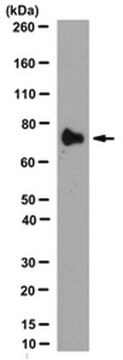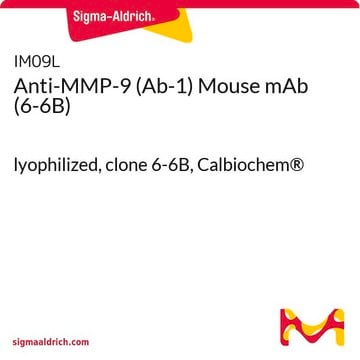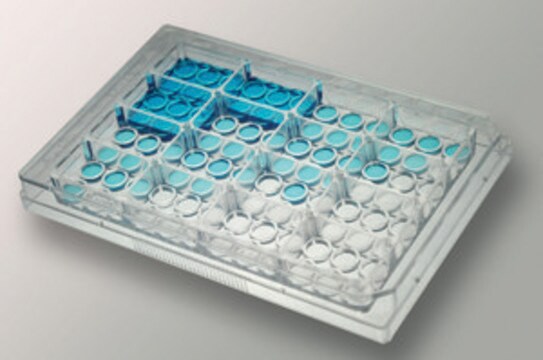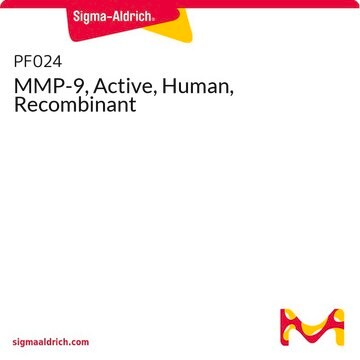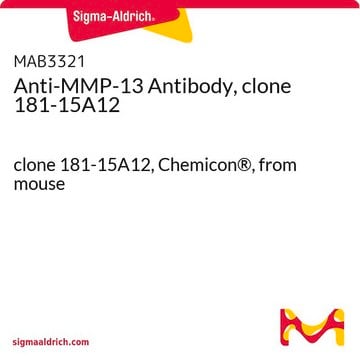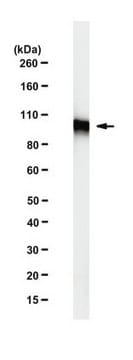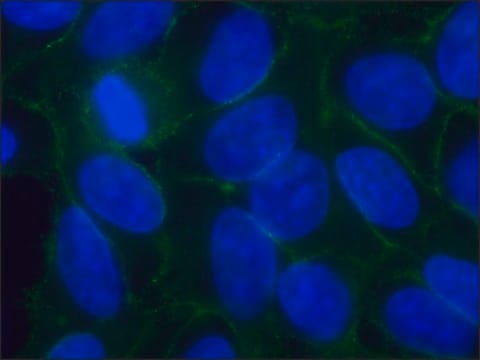IM37
Anti-MMP-9 (Ab-3) Mouse mAb (56-2A4)
liquid, clone 56-2A4, Calbiochem®
Synonym(s):
Anti-Gelatinase B, Anti-92 kDa Gelatinase, Anti-Matrix Metalloproteinase 9
About This Item
Recommended Products
biological source
mouse
Quality Level
antibody form
purified antibody
antibody product type
primary antibodies
clone
56-2A4, monoclonal
form
liquid
contains
≤0.1% sodium azide as preservative
species reactivity
human, rabbit, rat, guinea pig
should not react with
hamster, mouse, bovine
manufacturer/tradename
Calbiochem®
storage condition
OK to freeze
avoid repeated freeze/thaw cycles
isotype
IgG1
shipped in
wet ice
storage temp.
−20°C
target post-translational modification
unmodified
Gene Information
human ... MMP9(4318)
General description
Immunogen
Application
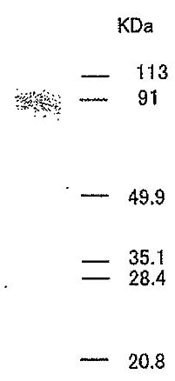
Frozen Sections (see application references)
Immunoblotting (1 g/ml)
Paraffin Sections (see application references)
Packaging
Warning
Physical form
Reconstitution
Analysis Note
MMP-2 protein (Cat. Nos. PF023 or PF037)
MMP-9 protein (Cat. Nos. PF024 or PF038) or breast carcinoma tissue
Other Notes
Stetler-Stevenson, W.G., et al. 1993. FASEB J.7, 1434.
Okada, Y., et al., 1992. J. Biol. Chem.267, 21712.
Woessner, J.F. 1991. FASEB J.5, 2145.
Liotta, L.A. and Stetler-Stevenson, W.G. 1990. in Seminars in Cancer Biology, ed. M.M. Gottesman. Vol. 1, 99.
Legal Information
Not finding the right product?
Try our Product Selector Tool.
Storage Class Code
10 - Combustible liquids
WGK
WGK 1
Flash Point(F)
Not applicable
Flash Point(C)
Not applicable
Certificates of Analysis (COA)
Search for Certificates of Analysis (COA) by entering the products Lot/Batch Number. Lot and Batch Numbers can be found on a product’s label following the words ‘Lot’ or ‘Batch’.
Already Own This Product?
Find documentation for the products that you have recently purchased in the Document Library.
Our team of scientists has experience in all areas of research including Life Science, Material Science, Chemical Synthesis, Chromatography, Analytical and many others.
Contact Technical Service